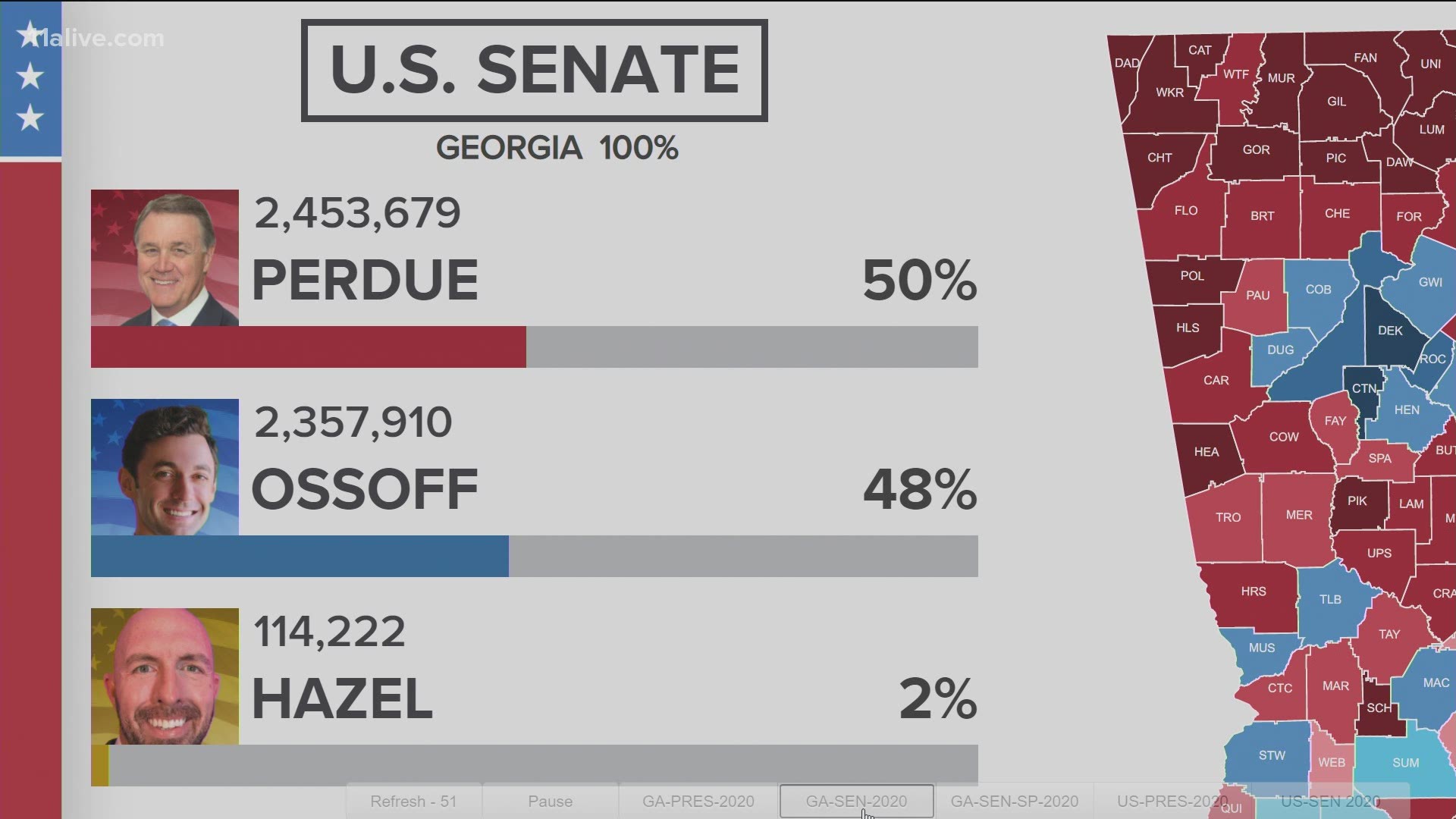ATLANTA — Following Tuesday’s election, Georgia will have two Senate races in a runoff.
Races go to a runoff when neither of the candidates gets a margin of 50% +1 vote. The two candidates with the most votes qualify for the runoff.
Friday night, The Associated Press called a runoff for incumbent Republican Senator David Perdue and Democrat challenger Jon Ossoff.
The runoff between incumbent Republican Senator Kelly Loeffler and Democrat challenger Raphael Warnock was called earlier in the week. That race is a special election to fill the seat vacated by Sen. Isakson's retirement.
In a press release Friday night, Georgia's Secretary of State Brad Raffensperger said they are ready to facilitate the runoffs.
"We’re as anxious as anyone to see the final results and to start work on certification and planning for our runoff elections. As the work goes on, I want to assure Georgia voters that every legal vote was cast and accurately counted."
Georgia is the only state in the country that had two senate seats on the ballot. Now, these historic runoffs are set for January 5. Georgia voters now have the chance to shift power in the U.S. Senate.
Candidates in the runoff will face another election on January 5, 2021.
Voters can request and absentee ballot now. Those ballots won't be sent out in the mail until after Nov. 18.
The deadline to register to vote for the runoff is December 7.
Early voting for the runoff will begin on December 14, 2020.
Why do runoffs exist in Georgia politics?
According to a 2014 analysis by the Washington Post, runoffs are a vestige of a time when white Democrats controlled Southern politics and manipulated election rules to remain in power.
The Post article quoted University of Georgia political scientist Charles Bullock, who said that in the days when the Democrats were the only party in town, the runoff was often the "determinative election." Often, in those days, Bullock said, there were "more people participating in the runoff than in the original primary."
According to the Post's article, the runoff system was used, along with literacy tests, poll taxes and other hurdles to keep African Americans away from the ballot box.
In recent years, Georgia is one of seven states - along with Alabama, Arkansas, Mississippi, Oklahoma, South Carolina and Texas - where runoffs are required if a single candidate does not receive at least one vote beyond a 50% threshold in an election. In two other states, the bar is even lower: 40% in North Carolina and 35% in Louisiana. South Dakota and Vermont have very limited instances in which they use runoffs, according to Ballotpedia.

